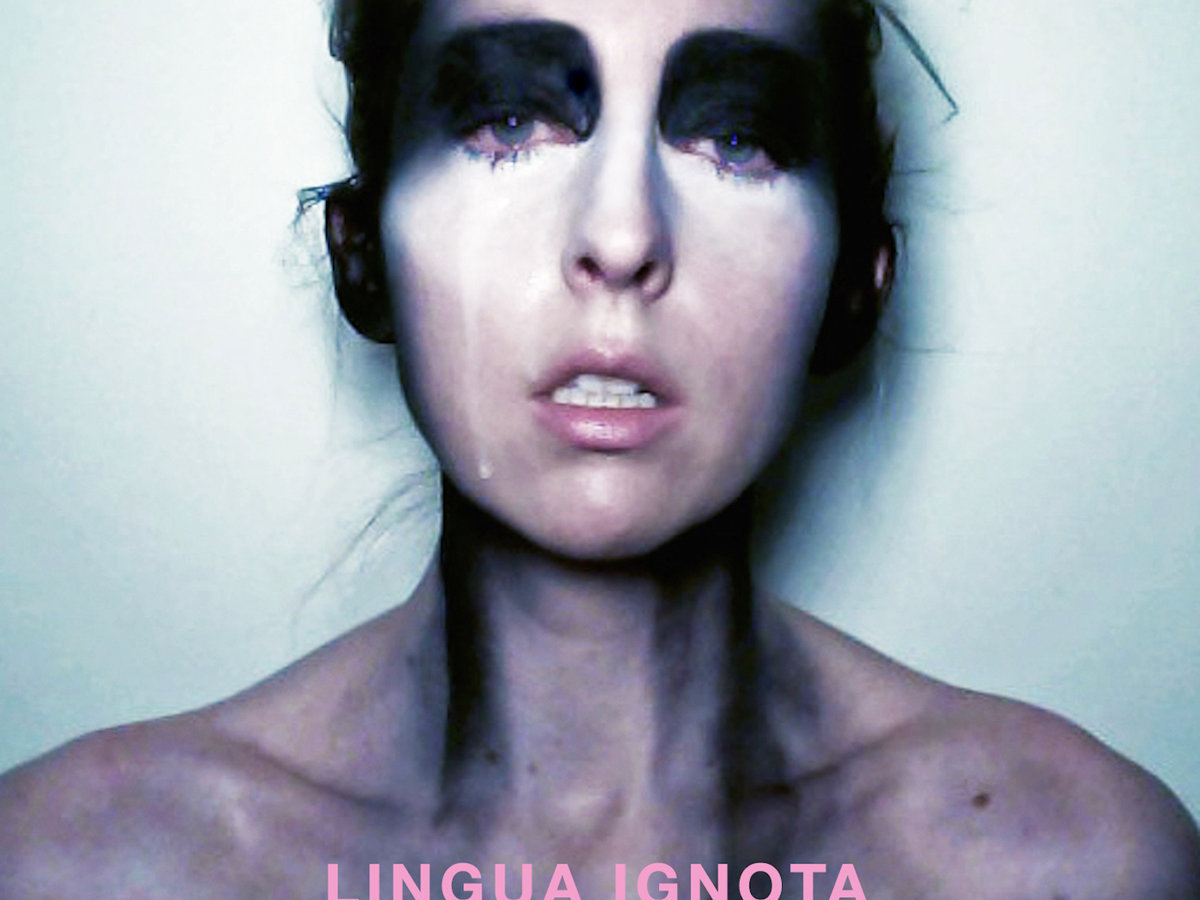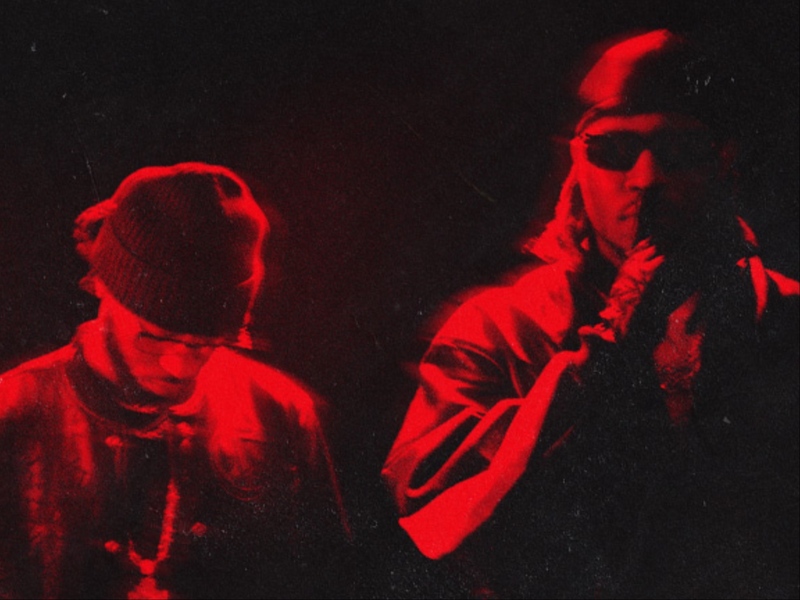One of my favorite albums of 2017 was Lingua Ignota's ALL BITCHES DIE, in which multi-disciplinary artist Kristin Hayter paints a grim fantasy, exacting unyielding retribution upon her rapists.
Lingua Ignota will be performing in Milwaukee with THE BODY and Cavernlight at The Cactus Club on Thursday June, 28.
ALL BITCHES DIE was lauded in Bandcamp's Top 100 albums of 2017 and starts with a the dull clanging sound of rusted, medieval bells, as if calling to bring out your dead, then blasts the listener with an evil warning, screamed through growled vocals: "Woe to all!" But while this assault is loud and angry, it comes surprisingly from classically-trained singer, Kristin Hayter.
These intense juxtapositions continue; as the album progresses, it defies classification and passes between genres with each track: dark metal riffs, soaring choral beauty and harsh noise. Through it all, Hayter explores her tenuous connections with God and attempts to salvage her past through a fantasy to destroy those who visited sexual violence upon her.
It is a powerful, painful and vengeful journey that transforms Hayter into pure will as she refocuses her trauma and casts it out to devastate everything around her.
The album runs in high contrasts. A pure, classically-trained voice blissfully rings out disturbing words of defilement. Calls for destruction sound both angry and desperate. The album bathes in noise and seems to disintegrate at times, but the goals remain focused. Hayter skillfully re-frames both sacred music and violent tropes of hate, turning them around to pursue her oppressors; where some bands channel imagined slights into anger, she channels real pain into retribution.
I reached out to Hayter through email to get an idea of how things have been going since the album release.
OnMilwaukee: You grew up Catholic and enjoy choral music, but things have changed since then. With a life marked in darkness, what is your relationship to the religion now?
Kristin Hayter: I didn't relate to Catholicism for a really long time, and was a staunch atheist up until a few years ago. I think that after severe trauma I opened myself back up to it. I didn't have anywhere else to put my pain, I needed to access something higher than or outside myself. And maybe I wanted to find God to curse Him, or to curse others in his name.
What kind of processes and instruments did you use to mold the sounds of this album?
My first release was very procedural, and this one is formally more organic. I was reading a book called "When Battered Women Kill" by Angela Brown and decided to write a cycle of murder ballads. I wanted to tap into the sound world of folk and folklore so while there’s organ and piano that I use often, I also incorporated a bowed psaltery and balalaika, and samples of the score of (Pier Paolo) Pasolini’s "Medea" which uses bells and angular strings.
How have things changed since your album made it into Bandcamp's Top 100 albums of 2017?
When I released ABD on Bandcamp I had only been playing shows in Providence for less than a year and I was certain nobody would care. The thing kind of took on a life of its own, there was no PR or any sort of hype machine carrying it and it just sort of circulated. I never would have thought that I'd be writing you from Canada right now on a full North American tour with The Body and my record on vinyl pressed by Profound Lore. It's surreal.
I read in interviews that you use and re-write a lot of existing songs. Are there covers buried in "ALL BITCHES DIE"? Are they so deeply transformed that I don't recognize them, or am I missing the references?
Yes there are! There are references hidden everywhere and there are a lot of intentional nods to other things all over the place. For instance, the title track features a version of the old murder ballad, "Knoxville Girl," but from the perspective of the girl who is murdered.
As a multi-disciplinary artist, what is the thread that binds all your work together?
During undergrad at art school in Chicago I was taught to think about using different mediums to see ideas to fruition. I think about making work in these terms: what are the materials and forms I can use to best express certain concepts.
You use your art as a catharsis to reconcile your past. What made you decide to do it in such a public way? How did you expect the audience to react, and what made you push through your doubts and do it anyway?
I've always made work about my past, which has been rocky and dark in additional ways, but I think this work harnesses modes of expression that are sort of fresh, and the more I go through the work, the more I realize it isn't as much about me as I originally thought.
Experiencing domestic violence or sexual violence is a very lonely and isolating experience, in which you become convinced that you are impossibly alone. But I’ve found in making this work that I’m not alone, and maybe others who thought they were alone will discover they aren’t either. It’s a symbiotic relationship.
Of course there are people who really don’t get it or don’t want to get it and are actively hateful and I have to accept that. This isn’t neutral territory but I think it’s worth the risk.
What are the plans for the new album?
I've been recording it at Machines With Magnets in Pawtucket, Rhode Island, with Seth Manchester, a true genius who does a lot of The Body's stuff. Planning for release early next year with Profound Lore. I can't give too much away but it's absolutely psychotic.
How has the tour been so far?
Tour is wonderful! Chip [King] and Lee [Buford of The Body] are really close friends, incredibly generous, drama-free people and it's so easy to tour with them. Also they’re basically my favorite band and I get to watch them play every night and I feel like I'm spoiled forever. For myself, I love to share this work with new people, to feel out the room and shift the attitude of the set accordingly.
Jason McDowell grew up in central Iowa and moved to Milwaukee in 2000 to attend the Milwaukee Institute of Art and Design.
In 2006 he began working with OnMilwaukee as an advertising designer, but has since taken on a variety of rolls as the Creative Director, tackling all kinds of design problems, from digital to print, advertising to branding, icons to programming.
In 2016 he picked up the 414 Digital Star of the Year award.
Most other times he can be found racing bicycles, playing board games, or petting dogs.







